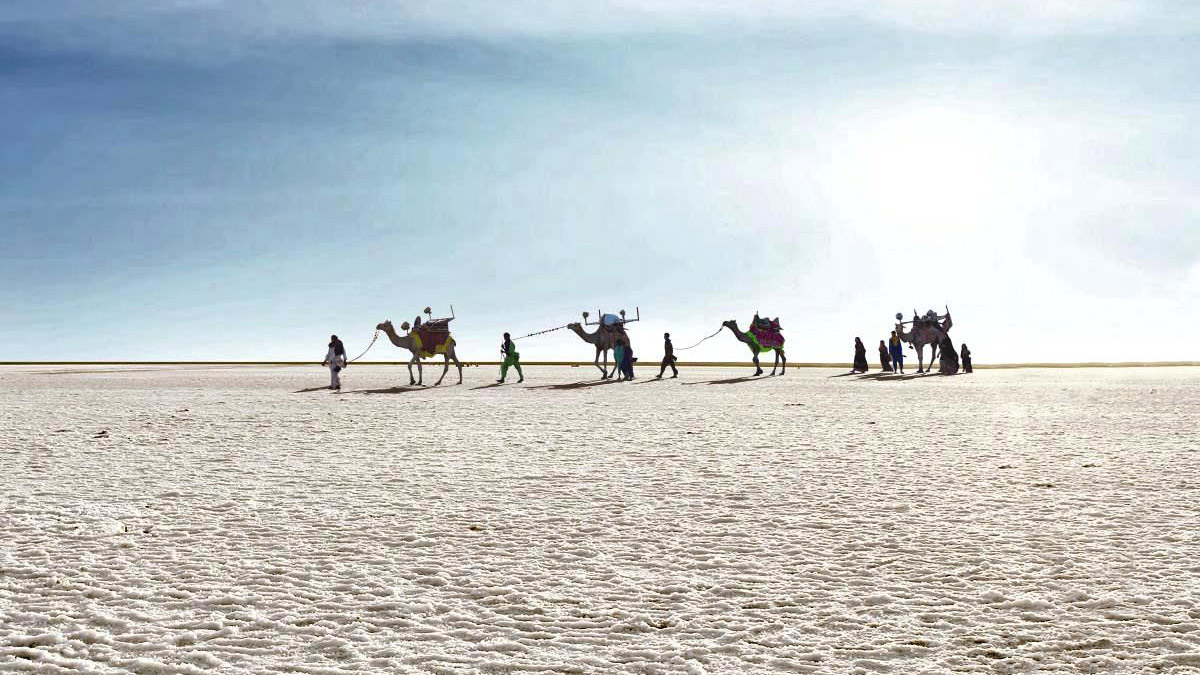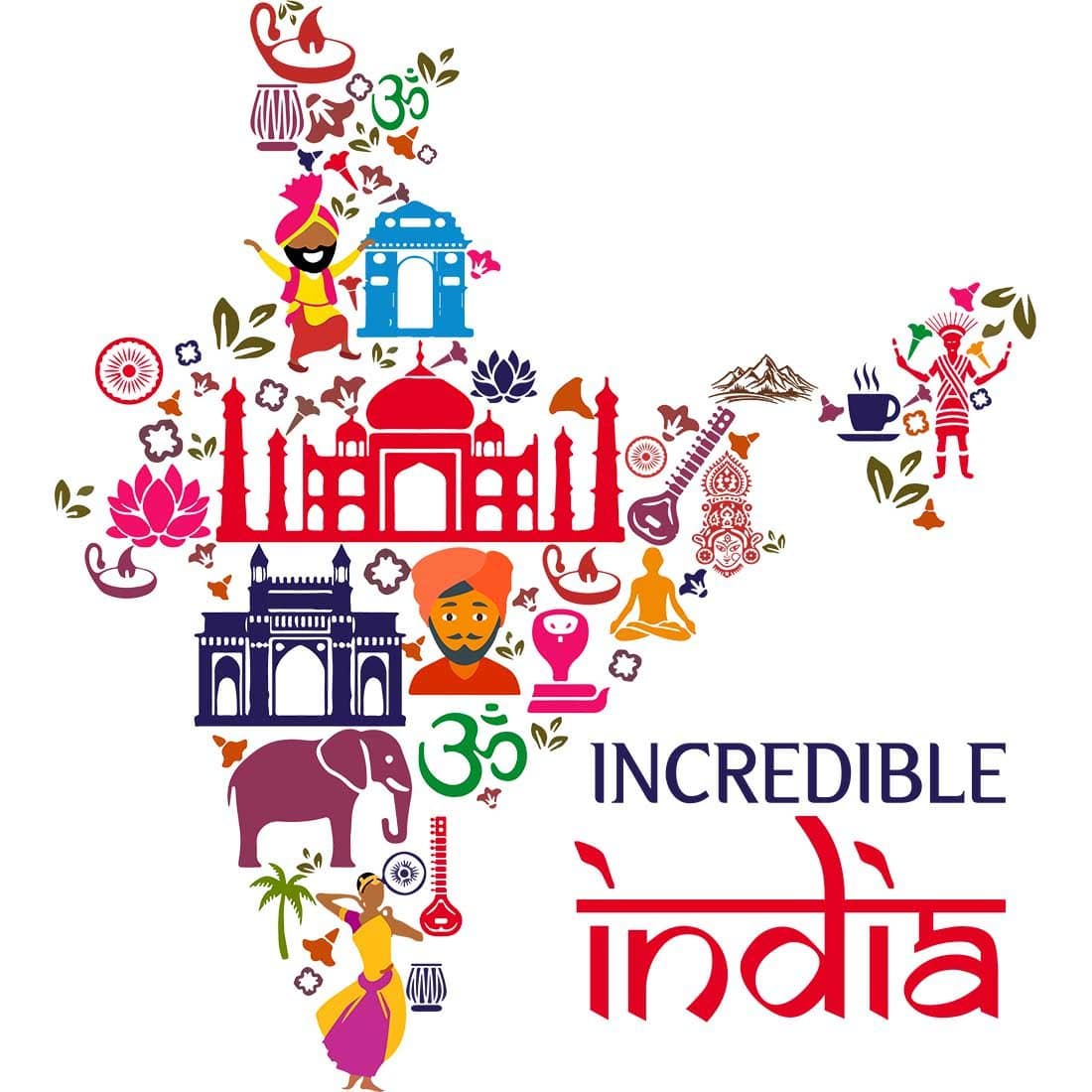India’s Famous Deserts


India’s deserts are a striking blend of golden sands, rugged terrains, and cultural vibrance. From the expansive Thar Desert in Rajasthan to the cold desert of Ladakh, each offers breathtaking landscapes, unique wildlife, and timeless traditions. These arid regions are not just about vast emptiness but also about festivals, forts, camel safaris, and starlit skies that leave travelers spellbound. Exploring India’s deserts is a journey into resilience, beauty, and heritage
Wiki Link: India’s Famous Deserts

Thar Desert
Jaisalmer, Rajasthan
Also known as the Great Indian Desert, is the most famous desert in India, stretching across Rajasthan and into Pakistan. Known for its golden sand dunes, camel safaris, and starry night skies, it offers a magical desert experience.
Villages dotting the desert showcase Rajasthani folk music, dance, and crafts. Jaisalmer, often called the “Golden City,” acts as the gateway to this desert adventure. The annual Desert Festival attracts tourists from across the world with vibrant cultural displays.

Ladakh Cold Desert
Leh Ladakh
Lies in the rain-shadow of the Himalayas, making it one of India’s most unique deserts. Unlike sandy deserts, it features barren mountains, rocky plateaus, and stunning high-altitude valleys. The landscape is dotted with Buddhist monasteries and pristine lakes like Pangong and Tso Moriri. With its extreme climate, wildlife like snow leopards and yaks thrive here. It’s an unmatched blend of spirituality, adventure, and surreal beauty.

Spiti Valley Cold Desert
Kaza, Himachal Pradesh
Cold desert nestled in the Trans-Himalayas, surrounded by towering peaks and rugged landscapes. Known as “Little Tibet,” it is rich in Buddhist culture and dotted with ancient monasteries like Key and Tabo.
The barren land, clear skies, and turquoise rivers create breathtaking contrasts. Adventure seekers flock here for trekking, camping, and high-altitude road trips. Its remoteness adds to its mystical charm, offering peace far from city life.

Rann of Kutch
Bhuj, Gujarat
A vast salt desert in Gujarat, famous for its white crystalline landscape. During the Rann Utsav, the desert transforms into a cultural carnival with folk dances, music, and crafts.
The moonlit view of the white desert is truly mesmerizing. Flamingos and wild asses add a unique ecological aspect to the region. It’s both a natural wonder and a cultural treasure.

Nubra Valley Desert
Diskit, Ladakh
Often called the “Orchard of Ladakh,” is a high-altitude desert famous for its sand dunes and double-humped Bactrian camels. Surrounded by snow-clad peaks, it presents a rare combination of desert sands and glaciers.
The Diskit Monastery with its giant Maitreya Buddha statue is a highlight. Visitors can enjoy camel rides across the sand dunes at Hunder. The valley’s unique mix of greenery, barren mountains, and sand makes it unforgettable.

Jaisalmer Desert Dunes
Jaisalmer, Rajasthan
The Sam and Khuri sand dunes near Jaisalmer are iconic parts of the Thar Desert. They are popular for camel safaris, jeep rides, and desert camping. Travelers can experience traditional Rajasthani folk music and dance under starlit skies.
The shifting golden sands make for spectacular sunset views. This area epitomizes the quintessential desert adventure in India.

Kutch Desert Wildlife Sanctuary
Kutch, Gujarat
Part of the Rann region, the Kutch Desert Wildlife Sanctuary is unique for being submerged in seawater during monsoons and turning into a desert afterward. It is home to flamingos, wild asses, and migratory birds.
The landscape of salt plains and arid stretches creates a surreal environment. Visitors can enjoy both wildlife watching and the stark beauty of this desert.

Lahaul Desert
Keylong, Himachal Pradesh
Forms part of the cold desert region of Himachal Pradesh. Unlike lush Himalayan valleys, it features barren plateaus and rocky terrains. Ancient monasteries, icy rivers, and snow-draped passes highlight its landscape.
Trekkers and bikers often explore this desert on the Manali-Leh Highway. It remains one of India’s least explored but breathtaking desert destinations.

Bikaner Desert Region
Bikaner, Rajasthan
Is another gateway to the Thar Desert, offering desert landscapes with a touch of royal heritage. Known for its camel breeding farms and desert safaris, the city also has forts and palaces.
The desert areas around Bikaner are less crowded than Jaisalmer but equally enchanting. Camel festivals showcase Rajasthan’s deep bond with the desert. The mix of cultural charm and desert adventure makes it a favorite.

Kargil Desert Region
Kargil, Ladakh
Though famous for its history, also features cold desert stretches typical of Ladakh. The arid mountains and sparse vegetation create a stark, mesmerizing landscape. Despite its harsh climate, it has a cultural vibrancy reflected in monasteries and local traditions.
Trekkers and adventurers find Kargil’s desert terrain ideal for exploration. It stands as a unique desert destination beyond the mainstream.

Cholistan Desert
Jaisalmer Border Region, Rajasthan
Though the Cholistan Desert mainly lies in Pakistan, its fringes extend into Rajasthan near Jaisalmer. This semi-arid zone merges with the Thar Desert and shares similar sand dune landscapes.
It is home to nomadic communities who live a traditional desert lifestyle. The region is dotted with forts and ruins from past kingdoms. Its cross-border desert culture makes it a fascinating study for travelers.

Cold Desert in Zanskar Valley
Padum, Ladakh
Another high-altitude cold desert located in Ladakh. Famous for the frozen Zanskar River trek (Chadar Trek), it is rugged and remote. The barren landscapes, broken by blue rivers and white peaks, are breathtaking. Buddhist monasteries perched on cliffs add to its cultural significance. The valley remains cut off in winters, giving it an untouched desert aura.

Cold Desert of Tso Kar Basin
Rupshu Valley, Ladakh
A cold desert region surrounding the Tso Kar Lake. It is known for its stark salt plains, high-altitude wetlands, and nomadic Changpa tribes. Wildlife like kiangs (wild asses) and migratory birds thrive in this harsh climate.
Its silence and raw beauty leave travelers spellbound. Camping under the starlit desert sky here is a surreal experience.

Hanle Cold Desert
Hanle, Ladakh
A remote village in Ladakh, lies in a cold desert region at an altitude of over 4,500 meters. It is famous for the Indian Astronomical Observatory, one of the world’s highest. The barren desert here is dotted with monasteries and nomadic settlements.
Clear skies make it a stargazer’s paradise. Hanle offers an untouched desert experience away from crowds.

Barmer Desert Region
Barmer, Rajasthan
One of the least explored desert regions of Rajasthan, offering raw desert landscapes and cultural richness. Known for its folk music, dance, and handicrafts, Barmer thrives amidst sand dunes and arid plains.
The area also features historic temples and ruins. Camel safaris provide an authentic desert journey. Its simplicity and rustic charm appeal to offbeat travelers.

